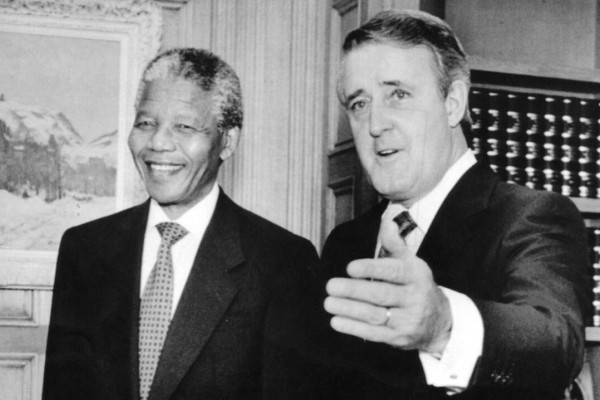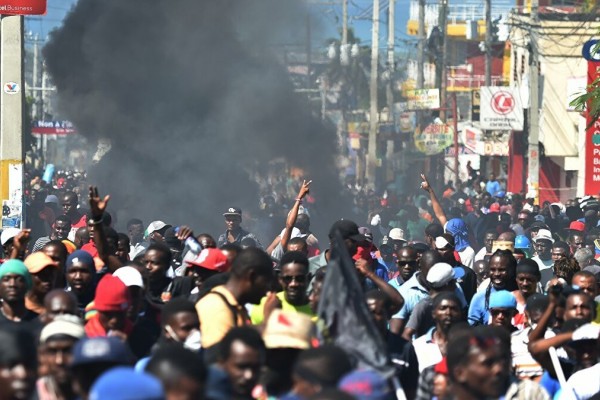The end of CIDA - Planned and Predictable
The 1950s was a time of momentous change in the world. Europe was rebuilding after having barely escaped the horrors of fascism. Africa and Asia were throwing off the yoke of colonialism. In the Americas, movements for social justice and democracy were springing up.
The United Nations, once a dream, became a reality. Within this tumult and thirst for change, the idea of international development and co-operation emerged while the U.S. and the USSR realized that peace could not be assured through old colonial practices. Many countries, not yet known as the Third World, demanded the end of the pillage of their natural resources.
Finally, in the 1960s, Canada decided to get on board. Public opinion was clear — the devastating poverty affecting three-quarters of the world’s population was morally and political untenable.
A man of vision, Pierre Gérin-Lajoie, was named to head the Canadian International Development Agency (CIDA) and he arrives on the scene ready to give new impetus to the nascent movement. A former Minister of Education during Quebec’s Quiet Revolution, he believed that international development was everyone’s business and gave CIDA a clear mission — to participate in the development of impoverished countries.
Throughout those years of exciting change, CIDA and a wide group of non-governmental organizations (NGOs), brimming with energies and ideas, became well-respected partners throughout the Third World. At the UN, Canada plays a leading role as the champion of development, arguing that rich countries should devote 0.7% of their GNP to the world–wide fight against poverty.
But the Cold War between superpowers heated up a few decades later. In the early 1980s President Reagan began a program of re-militarization of the United States. In Canada a conservative tide brings government policy “back into line.”
And then CIDA aligned itself with the World Bank who wanted to “tame” those Third World countries that were viewed as recalcitrant and difficult.
Serious conflicts erupted with those NGOs that wanted to take seriously the necessity to struggle against poverty, a position that was incompatible with the neoliberal “recipes” imposed upon poor countries. In the 1990s, and in line with this austerity push, the Liberal government slashes the CIDA budget by 30 % in the name of deficit reduction.
Popular organizations and NGOs vigorously protested. The NGOs took the position that you’ve got to save the baby (CIDA) but throw out the bathwater. In other words, there had to be a refocusing of energies on the fundamental mission of CIDA, the struggle against poverty. NGOs and other partners organize a world-wide campaign which meets with some success. In 2000, the UN General Assembly, adopts the Millennium Development Goals program, re-launching a modest but important program to address some of the most dramatic problems such as extreme poverty, lack of access to education and healthcare and women’s rights.
A big step backwards
In 2006, Stephen Harper and the Conservatives formed a minority government. His close advisors had a number of projects up their sleeves. One of them was to do away with CIDA, which was viewed in the same light as the CBC, the protection of the environment and of culture, and the redistribution of wealth between provinces, that is, as holdovers from days gone by and best forgotten.
In 2007, a Senate committee proposed the abolition of CIDA. Then, in 2010, the world reacted to this home-grown devaluation of Canadian international involvement. Canada’s candidacy for a seat on the UN Security Council was strongly rejected by an overwhelming majority of countries, a humiliating defeat, but not an unexpected one, given the government’s neo-conservative international agenda.
With a majority Conservative government in 2011, the ideological attacks increased. The government went after a number of NGOs that the conservatives considered “radical”, most notably Alternatives and Kairos, two organizations who had the misfortune to say out loud what many experts in the field were saying privately. Partnership programs, which allowed civil society groups to develop projects with public monies, were gutted. Soon afterwards, the Harper government closed down Rights and Democracy, a far from radical group, but which committed the “crime” of declaring that the Palestinians have rights equal to other groups.
At the same time, a review took place of CIDA funding of projects. The poorest country recipients, notably those in Africa, were cut off. Seemingly by accident, these were the same countries where commercial relations with Canada were limited and the presence of Canadian companies minimal.
Not surprisingly, other countries became “privileged” partners and it’s in these nations where we find Canadian companies, especially mining interests, becoming involved. By reducing Canadian government contributions to international development to unprecedented low levels, (less than half the .07% target promised in the 1970s), Canada earned a dubious accolade from the OECD being cited as an example for all rich countries not to emulate.
And things did not get any better. CIDA, on orders from Minister of International Cooperation, Julian Fantino, attempted to co-opt various NGOs to burnish the image of Canadian mining companies in Africa and Latin America. Meanwhile, other groups were no longer funded, to the delight of an array of “evangelical’’ NGOs, mostly based in Alberta, which received generous grants to “convert” the poor and to do battle against such supposed perversions as homosexuality. All the principles upon which CIDA was built have now been effectively dismantled.
The end of an era
Within the international development community, there are no illusions about the merger of CIDA with the Department of Foreign Affairs and International Trade (DFAIT). The government’s perspective is clear. The mission of the department is to defend the economic and political interests of Canada abroad. There is no longer any mandate to “fight against poverty.” International development now becomes s a sub-department of DFAIT and will strictly adhere to government dictates. The same thing has happened in New Zealand where a conservative government has made cuts that virtually destroyed development aid in that country.
It is true that the Conservative government in Ottawa may well continue with a few programs. Emergency humanitarian aid continues to grow, not unexpected given the scale and impact of the political exclusion and increasing militarization carried out by the Canadian government. Tragically, there will no shortage of victims requiring such assistance, given the ravages of the world-wide “war without end,” supposedly against terror, led by the United States and assisted by their willing “friends” such as Canada. One should not, however, overlook a little noticed feature of the political landscape that has escaped this neoconservative onslaught.
Canadian society has changed. Strong ties of solidarity have been established between NGOs, grass roots movements, as well as with certain universities and some municipalities. This important sector, formerly funded in part by public monies through CIDA, will continue its work and could become even stronger and, critically, more independent.
In Tunis, at the end of March of this year, thousands of NGOs met at the World Social Forum, including an impressive contingent of groups from Quebec and Canada. On the Forum’s agenda was the struggle against poverty and the fight for peace and dignity for the world’s people. This means confronting injustice and combating militarization. Organizations will also be working to design and put into practice a model of truly sustainable development, which means resisting the pillaging of the planet by multinational petroleum and mining interests. A new world-wide web of co-operation is being built and it will challenge the oppressive neoconservative juggernaut.
This article first appeared in Le Devoir in Montreal on March 23rd, 2013. Translated by John Bradley Pierre Beaudet is a Professor at the School of International Development and Global Studies Program at the University of Ottawa










